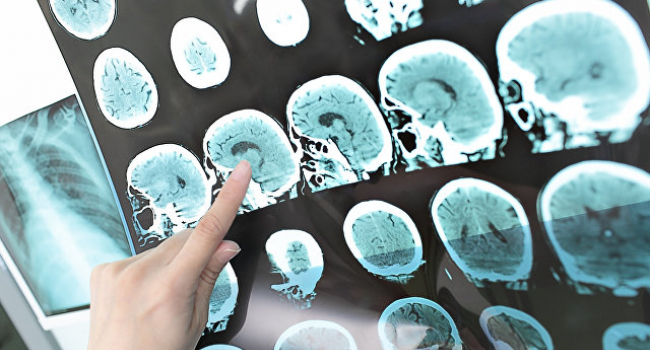- Latest news▼
-
12:16, April 19 Scientists grow human mini-lungs in lab

-
10:23, April 19 JAMA Oncology: Urine test can help rule out high-grade prostate cancer with almost 100% accuracy, study shows

-
18:00, April 18 Daily Mail: Elderly woman in China gets infected with brain-eating amoeba

-
14:19, April 18 Obesity: exercising before breakfast helps you lose weight faster

-
10:42, April 18 The Conversation: childhood trauma can cause pathological hoarding

-
08:37, April 18 Daily Mail: Satiating food reduces cravings for sweets, nutritionist says

-
18:22, April 17 First Armenian-German Conference entitled “Heart Failure Spring School”

-
08:38, April 17 Why do kids usually recover from COVID-19 more easily than adults?

-
14:37, April 16 Daily Mail: intermittent fasting is not suitable for children and women before their periods

-
16:41, April 15 Cell: in carriers of defective BRCA2 gene, sugar consumption increases cancer risk

-
15:04, April 15 305 cases of measles recorded in Armenia so far in 2024

-
14:38, April 15 Food and Environmental Virology: tea contributes to effective coronavirus control

-
12:41, April 15 Daily Mail: vitamin A, B3 and E supplements can be dangerous

-
10:56, April 15 Diabetes Care: evening physical activity is good for the heart

-
08:27, April 15 Women are more susceptible to blood loss and death during bypass surgery than men, researchers say

All materials
Pessimism originates in the brain, and scientists now know exactly where

Disorders like anxiety and depression have been linked to experiencing a pessimistic mood. This causes the affected person to focus on the possible drawback in a situation instead of the possible benefit.
Now, the region of the brain responsible for generating this pessimistic mood may have been identified by a team of scientists at the Massachusetts Institute of Technology (MIT).
The study titled “Striatal Microstimulation Induces Persistent and Repetitive Negative Decision-Making Predicted by Striatal Beta-Band Oscillation” was published in the journal Neuron on Aug. 9.
“We feel we were seeing a proxy for anxiety, or depression, or some mix of the two,” said senior author Ann Graybiel, an MIT Institute Professor and a member of the McGovern Institute for Brain Research.
The latest figures have indicated a rise in anxiety and depression diagnoses in the United States, especially among young adults and adolescents.
“These psychiatric problems are still so very difficult to treat for many individuals suffering from them,” Graybiel added.
The research team examined the brain region known as the caudate nucleus, which is linked to emotional decision-making. By using a small electrical current, they stimulated this region in the brains of animals.
The team conducted a series of trials where the animals were offered a reward (juice) which would be provided along with an unpleasant stimulus (a puff of air to the face).
“In each trial, the ratio of reward to aversive stimuli was different, and the animals could choose whether to accept or not,” stated the press release. “If the reward is high enough to balance out the puff of air, the animals will choose to accept it, but when that ratio is too low, they reject it.”
Upon stimulation of the caudate nucleus, the animals started to avoid combinations they would have accepted previously. This effect continues past the end of the stimulation as it was observed even during the next day before gradually disappearing.
The value of the reward perceived by the animals, thus, diminished. It suggested they focused more on the cost of the aversive stimulus which resulted in their choice to reject.
“This state we’ve mimicked has an overestimation of cost relative to benefit,” Graybiel said.
Noting the abnormal activity observed in the caudate nucleus during the study, the researchers also suggested it may somehow play a role in the disruption of dopamine activity.
“There must be many circuits involved,” Graybiel stated. “But apparently we are so delicately balanced that just throwing the system off a little bit can rapidly change behavior.”
In light of the new findings, she is currently working with psychiatrists at McLean Hospital in Massachusetts to study the brain activity of patients who are diagnosed with depression and anxiety.
Follow NEWS.am Medicine on Facebook and Twitter
- Video
- Event calendar
- Archive
- Most read
month
week
day
- WHO: Nigeria pioneers revolutionary meningitis vaccine 1194
- One-third of women experience menstruation-related migraines, most often during premenopause - study 1193
- Daily Mail: vitamin A, B3 and E supplements can be dangerous 1101
- Food and Environmental Virology: tea contributes to effective coronavirus control 1097
- Cell: in carriers of defective BRCA2 gene, sugar consumption increases cancer risk 1065
- 305 cases of measles recorded in Armenia so far in 2024 1059
- Women are more susceptible to blood loss and death during bypass surgery than men, researchers say 978
- Diabetes Care: evening physical activity is good for the heart 933
- Daily Mail: intermittent fasting is not suitable for children and women before their periods 889
- First Armenian-German Conference entitled “Heart Failure Spring School” 657
- Obesity: exercising before breakfast helps you lose weight faster 559
- Why do kids usually recover from COVID-19 more easily than adults? 557
- The Conversation: childhood trauma can cause pathological hoarding 556
- Daily Mail: Elderly woman in China gets infected with brain-eating amoeba 550
- Daily Mail: Satiating food reduces cravings for sweets, nutritionist says 521
- Find us on Facebook
- Poll





